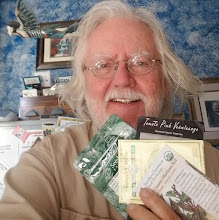A
recent visit to a nearby health food store opened my eyes to why some
so-called 'healthy' food companies are spending money
to defeat Prop 37: the truth would kill their business!
I
needed mayonnaise for a sandwich and the health store was on my way,
so I dashed in and was shown to the mayo aisle.
Needing about one
tablespoon of mayonnaise for this sandwich, I was naturally somewhat
reluctant to pay over $6.00 for a small jar of 'healthy' mayonnaise.
But it set me wondering: what the hell was in healthy mayo to make it
'healthy' vs. ordinary mayo?
Turning
the mayo jar over to the list of ingredients, it would be an
under-statement to say I was a little shocked to find that the
'healthy' mayonnaise was made, depending on the brand, with either soy or canola oil – two
commodities that are much more likely than not, genetically modified!
And the scales fell from my eyes.
Currently somewhere south of 15% of all soybeans planted in the US are non-GMO (although this figure is currently trending up as of this writing; farmers are willingly switching acreage back from GMO soy to non-GMO - good news, though I cannot, as yet, tell why). That 'less than 15% figure' is far too small to supply all the products using soy that sport 'healthy' and other monikers of health labels on their products. Surely an organic behemoth like Whole Foods could absorb all that non-GMO soy crop and still need more for their vast in-house brands. Where does the rest of this 'non-GMO' soy come from?
Canola presents a slightly less smiley face. According to an Oregon State Extension bulletin clear back in 2008, "Non-GMO
winter and spring canola varieties are available, but they are
rapidly becoming difficult to find." If they were difficult to find in 2008, I wonder what it's like in 2012? Canola was one of the first successful genetically modified introductions and currently about 90% of the United States' production of canola is GMO. I couldn't find a figure for the percentage of Canadian production, but it is surely similar to the US figure. Canola is a made-up name for 'rapeseed.' "Rapeseed oil" was thought to be a tough sell to women shoppers, and since most of it was grown in Canada, someone came up with Canola as the name to sell. Rapeseed is a brassica and rapeseed pollen can cross with cabbage, broccoli, Brussels sprouts, cauliflower and mustard.
Companies
that label themselves as 'healthy' have no standard to
prove the label. Imagine the shock of health food store shoppers
finding products labeled “healthy” and sporting a GMO
sticker to boot! Obviously, an informed shopping public would be a
non-buying shopping public and if these companies have to charge over
$6.00 for a small jar of 'healthy' mayo with GMOs, what's it going to
cost if it is 'healthy' AND non-GMO? You can see these little
producers squeezed out of the market completely – already they are
marketing to a very small portion of the food buying public, any more
shaving of their demographic and they are sunk.
Still.
Profit before the public's health? The bottom line on this whole
discussion, and it is an unassailable position, is that the public
deserves to know what is their food.
I
didn't buy the mayo. I got a packet of Best Foods (soy oil)
mayonnaise. It didn't cost me $6.00 and it didn't claim to be
healthy. Yes, it was most likely GMO, but they didn't take my money
and try to pull the wool over my eyes. After Prop 37 is law, there's
going to be hell to pay for a large portion of the food producing
industry.
We
all might have to go to mustard on sandwiches. As long as it hasn't crossed with GM rapeseed.
david









.jpg)
No comments:
Post a Comment